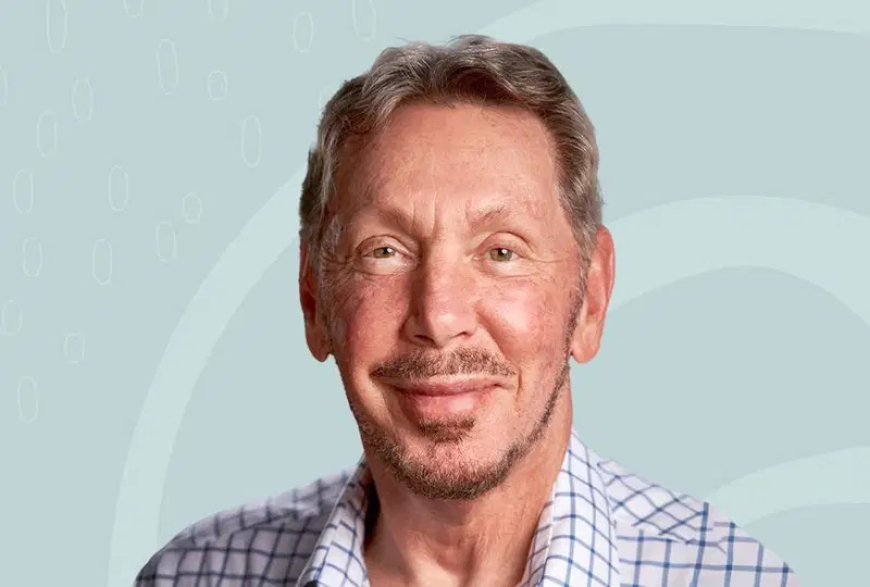Oracle co-founder Larry Ellison overtakes Mark Zuckerberg as world’s second-richest person

Oracle co-founder Larry Ellison has climbed past Mark Zuckerberg to become the world’s second-richest person, following a surge in Oracle’s stock linked to its aggressive push into artificial intelligence.
Ellison, now 80, boasts a net worth of $251 billion—having gained nearly $60 billion so far in 2025—according to the Bloomberg Billionaires Index. His wealth is largely derived from his 40% stake in Oracle, the database giant he founded in 1977. The company’s stock has risen 41% year-to-date, driven in part by a sharp rally over the past two weeks.
Much like Nvidia CEO Jensen Huang, Ellison’s fortune has expanded rapidly as investor appetite for AI-related stocks grows in an increasingly tech-driven economic landscape.
Despite the uncertainty in markets under the current U.S. administration, AI stocks have posted notable gains. Huang recently confirmed that his company had received U.S. government approval to resume advanced chip shipments to China, providing further momentum for the sector.
Ellison has also played a prominent role in the Biden administration’s AI strategy. He was among the high-profile tech leaders present at the launch of Stargate, a federal initiative aimed at giving the U.S. a strategic edge in artificial intelligence.
Oracle, alongside SoftBank, OpenAI, and MGX, is a founding equity member of Stargate, which will channel $500 billion into AI infrastructure development over the next four years. Oracle and OpenAI are also core technology partners in the effort, joining industry giants like Arm, Microsoft, and Nvidia.
Oracle’s recent stock rally has been fueled not just by its AI affiliations but also by strong earnings and continued investment in cloud and AI infrastructure.
In its full fiscal year results released in May, Oracle reported Q4 revenues of $15.9 billion, marking an 11% increase. The company’s remaining performance obligations surged 41% to $138 billion, signalling robust future business.
Building on this momentum, Oracle announced a $3 billion investment in Germany and the Netherlands aimed at expanding cloud services and AI infrastructure across Europe.
Still, not all market watchers are fully optimistic. Goldman Sachs analysts maintained a ‘neutral’ rating in a June note following Oracle’s financial results.
They wrote: “While we are encouraged by the clear OCI [Oracle Cloud Infrastructure] demand momentum, we continue to see risk that Oracle may over-index investments to the low-margin and capital-intensive training cycle, which may weigh on FCF generation for the foreseeable future.”
As investor confidence in AI intensifies, other tech leaders have also seen their fortunes swell. Nvidia’s Jensen Huang has overtaken Warren Buffett, with a net worth of $149 billion—up over $34 billion this year—compared to Buffett’s $141 billion.
In addition to his business pursuits, Ellison has also recommitted to philanthropic work, updating his previous pledge to donate the majority of his wealth through the Giving Pledge.
Ellison first signed the pledge—launched in 2010 by Bill Gates, Melinda French Gates, and Warren Buffett—committing to give away 95% of his fortune. This week, he reaffirmed that commitment while unveiling a new initiative focused on applied science and humanitarian impact: the Ellison Institute of Technology (EIT), based at the University of Oxford.
Posting on X, Ellison wrote he believes giving to nonprofit organizations to pursue public good remains important, but added: “There are additional ways that I would like to invest my time and resources in giving back to the world we share.”
He continued: “EIT’s humane endeavors include transforming healthcare by designing and distributing a new generation of life-saving drugs, combating world hunger by engineering higher-yielding crops and building a global network of low-cost indoor growing systems, and slowing climate change by developing efficient clean energy generation and storage systems.
“So, I am amending my giving pledge and promising to do more—by concentrating my resources on the Institute. I believe this will improve our chances of delivering practical solutions to the problems of hunger, healthcare and climate change.”

 admin
admin 


